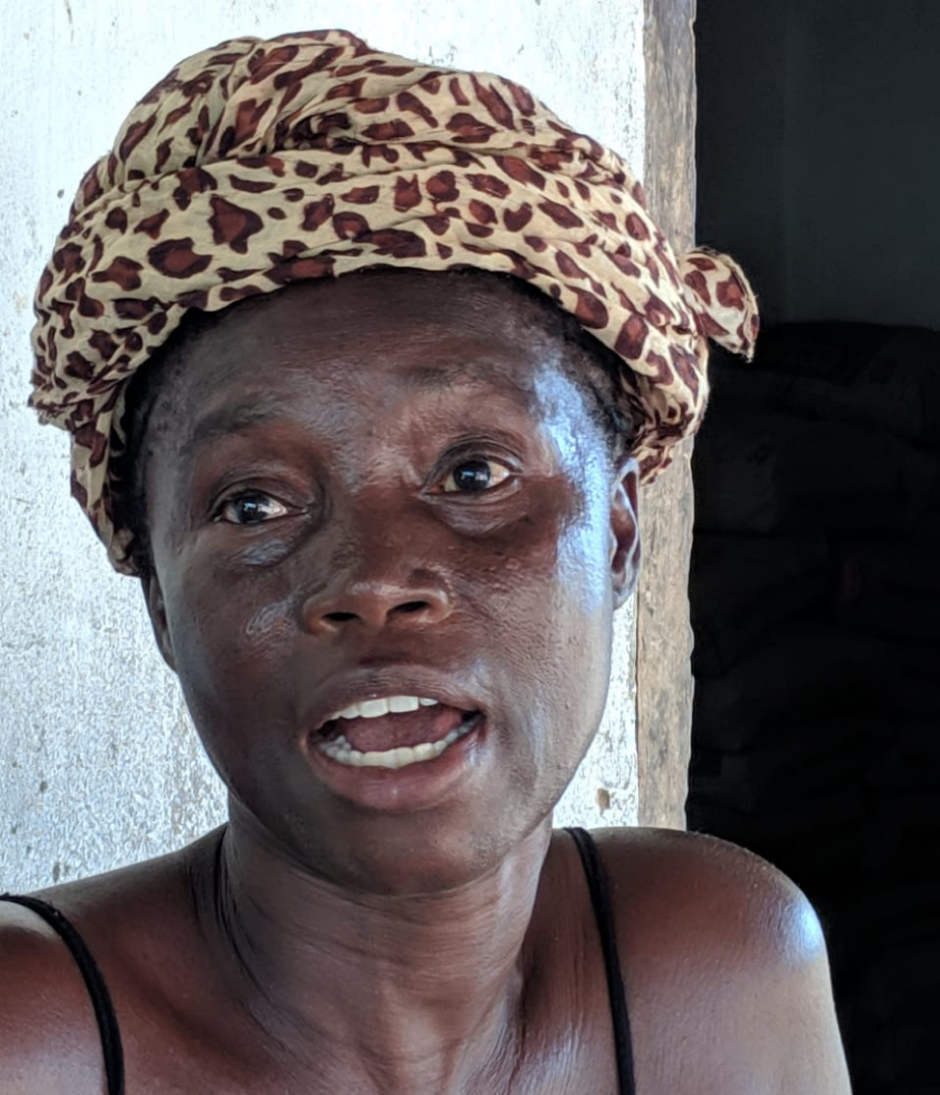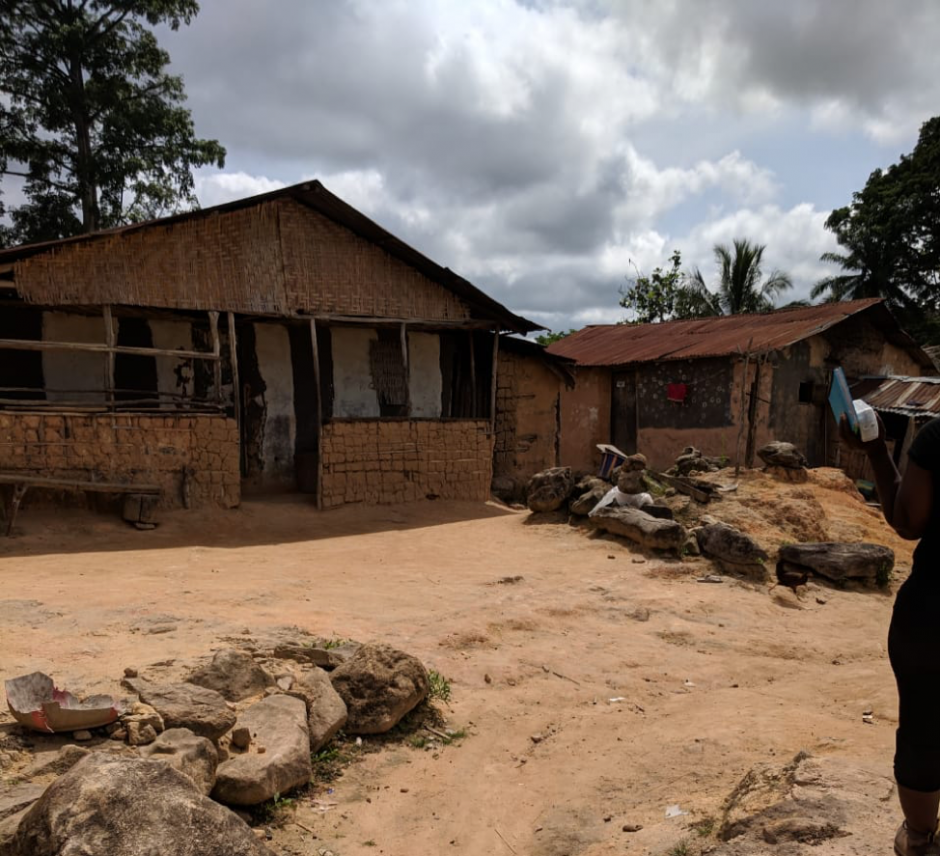
GOKAI TOWN, BONG COUNTY – Gormah Mulbah and her five children were thrown out of their home last year after her husband died. Her late husband’s family was angry she refused to marry his younger brother. While she thought all hope was lost, a man—whose identify she would not reveal over reprisal—confronted her in-laws over the matter.
“He told them if they did not allow me and my children to go back in our house, he was going to take the case to court,” Mulbah recalls. “He told them that the people passed the law that we the women get right just like the men,” she narrates.
Having regained her house, Mulbah wants to help other women protect their rights to land in Bong County. She and 34 other women from Gokai have joined women from the other clans of Suakoko District—named after a legendary female chief Madam Suakoko – to raise awareness about the Land Rights Act. The law was created last year and recognizes women’s land rights.
“I can help the women chairlady to put women together so we can tell them about their rights,” Mulbah tells FrontPage Africa on the porch of the thatched hut. “And we can also tell them they are not forced to marry their husbands’ brothers when their husbands die, because they passed the new land law that says women get right to land,” she says with a big smile.
For decades until Liberia passed into law the Land Rights Act last year, women were denied equal rights to land with men. Male siblings denied female siblings’ ownership of land. Women were not even allowed to speak about or make decisions on community land matters and were denied the right to own farmland.
“When men used to talk about land business, they never called women to be a part, but they used to talk it in the men’s society bush, so women could not go there,” recalls Mulbah. “Now it’s open and we are happy.”
Awareness of the Land Rights Act, experts say, is crucial to its implementation.

Mulbah and the other women’s rights campaigners are getting help from NGOs, including Parley Liberia, an organization that has worked on mediating land disputes and is helping communities understand the law and how it can be implemented. They hold periodic meetings with communities and discuss land and household matters. Their aim is to educate all the women of Suakoko District about their rights to land.
One of Mulbah’s colleagues, Gamai Flomo of the nearby Kporyorquelleh Clan says that women were discussing land matter openly shows that women are already on top of land issues.
“[Before] when any woman make mistake and go in the meeting while the men are discussing land business, the elders will disgrace and punish you by putting you under the sun until the sun goes down,” she recalls. She says land was only discussed in men’s secret societies.
Flomo tells the story about a friend named Nowai who she says, unlike Mulbah, was thrown out of her late husband’s house because she refused to marry the younger brother of her late husband. Flomo thinks men are already embracing equal rights for their wives. “We once had a land rights workshop and for two days,” she narrates, “the women cooked while the men were in the workshop. When it was time for the women to attend the workshop, the men went in the kitchen to cook for the women. The workshop organizers did it to show that men and women are equal.”
Flomo thinks men are already embracing equal rights for their wives. “We once had a land rights workshop and for two days,” she narrates, “the women cooked while the men were in the workshop. When it was time for the women to attend the workshop, the men went in the kitchen to cook for the women. The workshop organizers did it to show that men and women are equal.”
Several other laws passed prior to the Land Rights Law recognize women’s right to land and property in general, including the Domestic Relations Law, Customary Marriage Law and the Community Rights Law of 2009 with Respect to Forest Lands.
The Land Rights Act goes a step ahead of all. The law mandates women to have “strong ownership claims to customary lands, and have equal rights to use and manage community land”. And the law also provides equal women’s participation and membership of communities’ land governance structure.
Atty. J. Adams Manobah, chairman of the Liberia Land Authority (LLA), says the safeguards in the law are meant to prevent the experiences of people like Mulbah and Nowai. He says land matters were no longer only in the hands of chiefs and elders as in the past.
“Women like Nowai who are thrown out of their husbands homes, have the power to take their plights to the committee to report and women on the committee have the right to address those issues and make decision that will protect those women who have refused to marry their deceased husbands’ brothers,” Manobah says. “Because the new law calls for [a] customary land management and development committee, and on that committee there are equal representation of men and women, therefore women are also parts of the decision making to address those issues,” Manobah adds.
Ali Kaba, who heads the community land rights documentation program of the Sustainable Development Institute (SDI), says the law recognizes women’s role, particularly in rural communities.
“If you look in rural settings, women are the ones who use the land more, in getting food, water and farming. But when men are giving places out to concessionaires, they tend to leave women out and give away the places the women depend on to farm and survive,” says Ali Kabba.
Kaba argues that Mulbah and the other women of Suakoko are going to find it less difficult to make awareness on women’s land rights. “The struggle for gender parity just did not just start last year but a long time ago,” Kaba says. “It has been a lot of awareness for gender equality and including women in decision-making and this has all help to make women to become more involved. But if women are excluded from anything, it means you are excluding fifty percent of the people from decision making.”
Back in Gokai Town, Mulbah’s group of women’s land rights campaigners is growing day by day. Figures from Parley Liberia show there are 150 women. That is an additional 100 members since the campaign started here last year.
Mulbah says the goal of the group is to make sure every women in Suakoko District knows her right to land.
“We will go all around Bong County to teach the other women about their rights and show them how to stand for their rights when any man want take advantage over them.”
This story was a collaboration with Front Page Africa as part of the Land Rights and Climate Change Reporting Project. Funding was provided by the American Jewish World Service. The Funder had no say in the story’s content.
